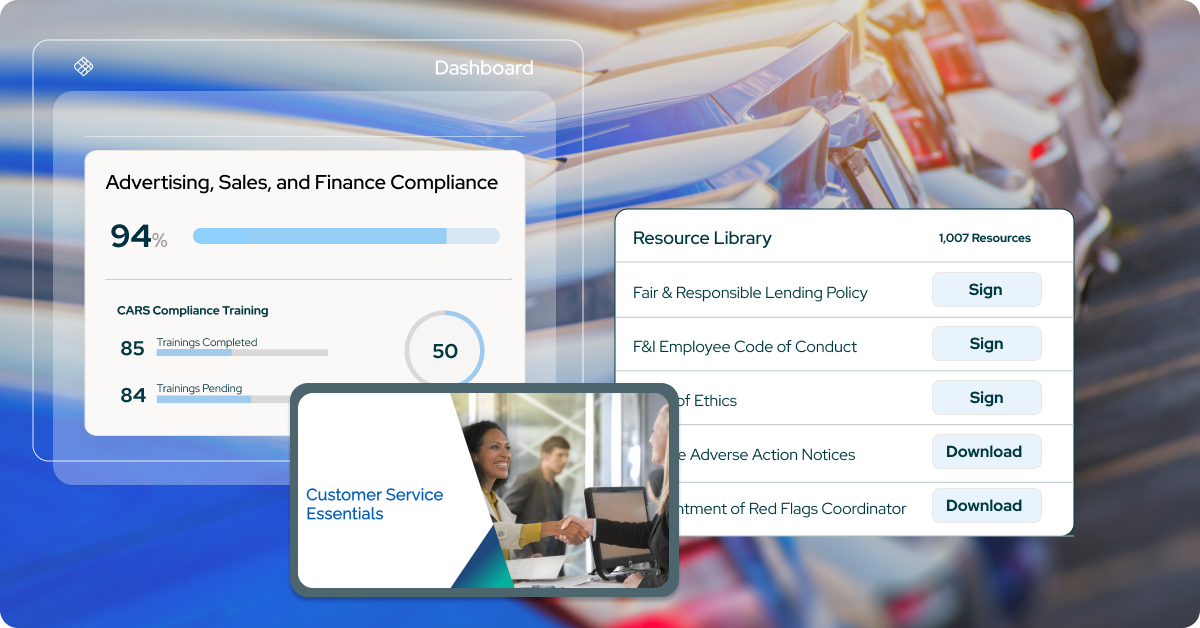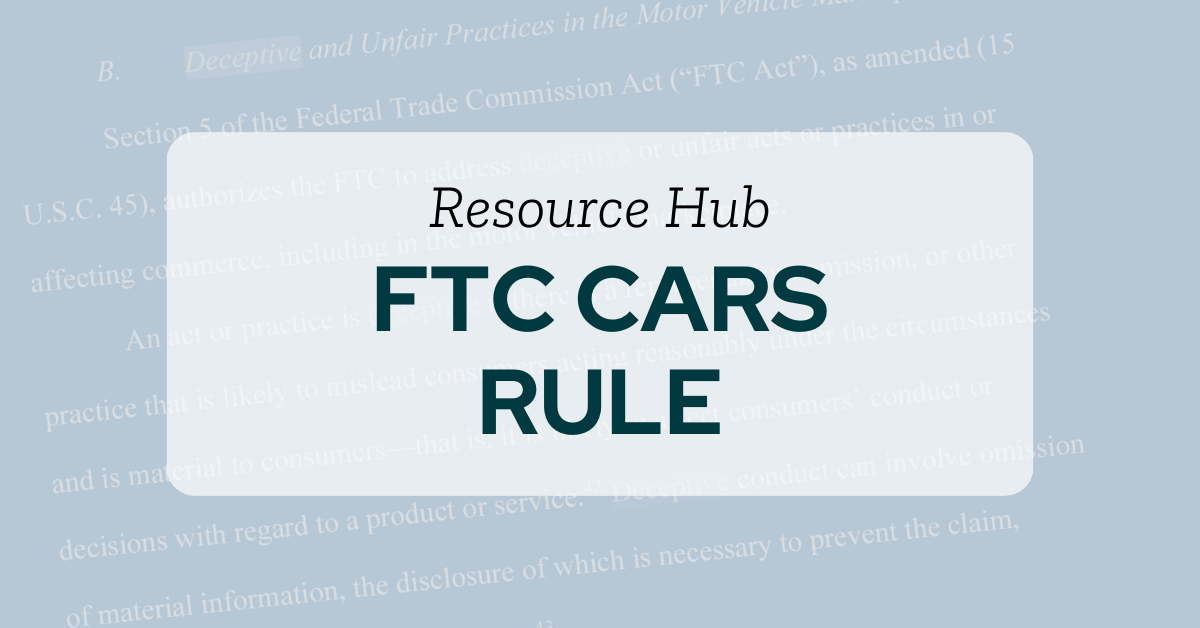Understanding Informed Consent: A Guide to Navigating the FTC’s CARS Rule Compliance
The FTC’s newly announced Combatting Auto Retail Scams Rule (or CARS Rule for short) has been a hot topic for dealers since it was announced in December. The CARS Rule will have a profound impact on dealership advertising, sales, and financing strategies prior to its effective date of July 30, 2024. KPA’s putting together a series of articles to help dealers educate themselves on the do’s and don’t of CARS Rule compliance. One of the four pillars of the CARS Rule (or, as we like to jokingly refer to them, the four horsemen of the apocalypse) the FTC is keeping an eye out to ensure buyers are providing informed consent.
We’ve been following the CARS Rule closely since it was first proposed. Here’s what you need to know.
What the FTC says about Informed Consent
It’s pretty cut and dry. The FTC’s Dealer’s Guide to the FTC CARS Rule states, “Under the CARS Rule, dealers must get consumers’ express, informed consent before charging them for anything. Period.“
What does the FTC Consider to be Informed Consent?
The FTC wrote this section of the rule to ensure that consumers understand in advance what they’ll be charged, and that businesses receive a fully-informed “yes” before a business can charge them.
The FTC considers Informed Consent as “an affirmative act communicating unambiguous assent to be charged.” This consent needs to be made after receiving a clear and conspicuous disclosure and needs to be located in close proximity to the disclosure as well. Consent should be in writing and, for in-person transactions, received orally as well.
Make sure you’re disclosing what the charge is for along with the amount of the charge. If the charge is for a product or service, make sure all fees and costs charged to the consumer over the period of repayment are disclosed both with and without the product or service.
What Informed Consent is Not
These examples are not going to fly in the eyes of the FTC:
- a signed or initialed document by itself
- prechecked boxes
- an agreement obtained through a practice that has the effect of impairing consumers’ autonomy, decision‑making, or choice.
Stay on the Right Side of the CARS Rule with Help from KPA
KPA has been working on its CARS Rule Solution ever since the proposed rule was first announced, and is the ONLY solution offering:

- Professional and automated website scans to help find and remediate violations of CARS, TILA, Reg M, Reg Z, and more, before vehicle delivery
- Remote and onsite deal jacket auditing
- Employee CARS Rule training, along with other advertising, sales, and F&I trainings
- Employee Assessments
- CARS Policies
- Consumer Complaint Management System
- Electronic archive for sales and marketing materials
We’ve been providing advertising, sales, and F&I solutions for over a decade, and KPA’s CARS Solution will help you navigate and comply with CARS well before July 30, 2024.

FTC CARS Resource Hub
The upcoming CARS Rule, effective July 30, 2024, will greatly influence dealership practices. Access our comprehensive resource hub for all the necessary information.
